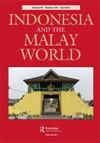向日葵脆弱的花朵
IF 0.9
3区 社会学
0 ASIAN STUDIES
引用次数: 0
摘要
摘要本文考察了朝鲜战争(1950-53)后第一批生活在朝鲜民主主义人民共和国(朝鲜或朝鲜)的两名印尼人,利用他们的经历(包括1965年后的政治流亡者)来探索印尼与这个最隐秘的国家的双边关系。他们的生活揭示了印尼与金王朝关系的许多不为人知的故事,从苏加诺最初的吸引力到继任者倒台后回归民主。尽管最近人们对1965年后在西欧、苏联和中国的印尼政治流亡者的命运感兴趣,但对前东方集团共和国(如阿尔巴尼亚、保加利亚、捷克斯洛伐克、匈牙利、南斯拉夫)或亚洲其他地方的这些流亡者,却很少有批判性的分析。同样,印尼的学术文献很少关注与朝鲜的双边关系。本文试图通过关注在朝鲜的印尼政治流亡者,分析决定他们在冷战期间和之后可以选择的因素,以及他们在双边关系中的地位,来弥补这些空白。在传记研究的本质上,这篇文章在很大程度上依赖于相关个人提供的材料,并优先考虑他们的观点。本文章由计算机程序翻译,如有差异,请以英文原文为准。
The Fragile Bloom of the Kimilsungia
ABSTRACT This article examines the first two Indonesians to live in the Democratic People’s Republic of Korea (DPRK or North Korea) after the Korean War (1950–53), using their experiences (including as political exiles after 1965) to explore Indonesia’s bilateral relations with this most secretive of states. Their lives reveal much of the untold story of Indonesia’s unfolding relationship with the Kims’ dynastic state from Sukarno’s initial attraction until the return to democracy after his successor’s fall. Despite recent interest in the fate of Indonesian political exiles in Western Europe, USSR and China after 1965, relatively little critical analysis has appeared regarding those exiles in republics across the former Eastern Bloc (such as Albania, Bulgaria, Czechoslovakia, Hungary, Yugoslavia), or elsewhere in Asia. Similarly, there is little attention given in Indonesia’s scholarly literature to bilateral relations with North Korea. This article attempts to address these lacunae by focusing on Indonesian political exiles in North Korea, analysing the factors which determined the options available to them during, and following, the Cold War, and their place in the bilateral relationship. In the nature of biographical studies, the article relies heavily on material provided by the individuals concerned and privileges their perspectives.
求助全文
通过发布文献求助,成功后即可免费获取论文全文。
去求助
来源期刊

Indonesia and the Malay World
ASIAN STUDIES-
CiteScore
2.00
自引率
0.00%
发文量
17
期刊介绍:
Indonesia and the Malay World is a peer-reviewed journal that is committed to the publication of scholarship in the arts and humanities on maritime Southeast Asia. It particularly focuses on the study of the languages, literatures, art, archaeology, history, religion, anthropology, performing arts, cinema and tourism of the region. In addition to welcoming individual articles, it also publishes special issues focusing on a particular theme or region. The journal is published three times a year, in March, July, and November.
 求助内容:
求助内容: 应助结果提醒方式:
应助结果提醒方式:


